Is BDS Effective Strategy? – Shir Hever Pt 3/3
Shir Hever discusses the campaign to Boycott, Divest and Sanction Israel for its apartheid policies, on theAnalysis.news with Paul Jay.
Transcript
Paul Jay
Hi, I’m Paul Jay. Thanks for joining me on theAnalysis.news. We’re going to continue our series of conversations with Shir Hever on Palestine, on Israel. And today we’re going to talk about BDS and other issues connected with international activities, campaigns, and strategies, and so on. So we’ll come back in a second and don’t forget the donate button, please.
So once again, now joining us to discuss the state of Israeli society and politics and in this episode, a little more of the international element is Shir Hever. He’s a political economist living in Heidelberg, Germany. Shir was born and raised in Jerusalem. He lived in Tel Aviv and Sderot. He moved to Germany in 2010. His recent book is The Privatization of Israeli Security. Thanks for joining us again Shir.
Shir Hever
Thanks for having me, Paul.
Paul Jay
All right, let’s start with this. Persuade me that BDS is a good tactic. Now, who the hell am I? You don’t have to persuade me, but I’m interviewing, so here it is. So let me tell you where I start with on this. First of all, somewhat of an open mind on it, but I lean in this direction, which goes like this. I think boycotting, divestment, sanctions against Israel, does Israel deserve such treatment? Yes, I think that’s beyond any shadow of doubt for me. Israel deserves such a campaign because it is an apartheid occupying state and so on. Is it an effective campaign? Is it the best way to marshal international public opinion. And two, is it really effective economically? Is it really going to cause so much trouble economically that it will change the basic policy directions of the Israeli state, no matter which party is in power?
So let me start with the second one. I’m going to go really fast here and then it’s over to you. Even though there has been some economic consequences, it’s not without some actual real effect, it’s not just public opinion. Some of the sanctions or divestment and some countries that are refusing to buy certain products and so on, it has an effect, but I don’t see it having an effect that’s actually going to change the course of the Israeli state and the apartheid state and so on. So let me go back to the first thing, marshaling international public opinion. I think it confuses things, because when I hear this campaign against Israel, I say to myself, “OK, sure, Israel deserves it, but so do the Saudis, at the very least for what they’re doing in Yemen, but even for a whole lot of other things.” But most importantly, the United States deserves it. No country has caused more havoc in the world and far more destruction in the world than the United States. And of course, we know Israel couldn’t even do what it’s doing without being enabled by the United States.
So why not boycotting and sanctioning? So I get that it wouldn’t mean very much in a real economic way. The American economy is too big, it’s too powerful, you’d never get any European country even mildly coming in on it. But my problem with it is that it kind of bolsters the argument that this critique of Israel, the opposition, is anti-Semitic. Why are you picking on Israel when you could be picking on some of these other countries that do just as bad or even worse things sometimes? And I think that is such an important point versus, for example, an international campaign that calls for one person, one vote, which is a real call for genuine democracy. And I know that’s a demand of BDS, I think. Although it’s not clear because BDS isn’t totally agreed on whether it’s pro two-state or one-state. So I don’t think that one person, one vote message comes out very clearly.
So at any rate, I’m left kind of on the fence. Like in a moral way, sure. Does Israel deserve it? Sure. But is it effective? And also, when I was in the West Bank and Ramallah and such and I was talking to activists who were very involved in promoting BDS externally, they were, at least the people I was talking to, and these were some of the leading people promoting BDS, they were less involved in actually developing a different kind of politics in Palestine. And even though they were fed up, and I think most Palestinians are fed up, both with the Fatah and Hamas. I mean, if there was a really good alternative I’m sure people would drop support for Fatah and Hamas if they could. But I found some of the activists that, at least I thought, would be the kind of people that could build such a thing, were very focused on this external BDS. Now, it’s very easy for me to say what I just said sitting here in la la land Toronto, because it may well be you try to do that in Palestine and you get either attacked by Fatah, Hamas, or most importantly, by the Israeli armed forces. So I don’t know what’s really possible.
Shir Hever
You created a very concise list of some very important points that I think emerge from misconceptions about BDS. And you’re asking me about BDS at the wrong time, really. Because after seeing what happened in the last two weeks in Palestine and the way that Hamas was able to get a lot of public support in Palestine, there is no stronger opponent to BDS than Hamas. Because Hamas is saying if you want to end Israeli occupation and apartheid, the only way to do that is with armed force. Let’s put aside all of those civil liberty movements and nonviolent protests and let’s use weapons. And Hamas gained a lot of points now. So I think that was a blow for BDS. We people who are supporting BDS and are active in BDS, we have to prove that BDS can be effective as well. One misconception I think that really creates a lot of problems with understanding what BDS is, is the idea that BDS is a punishment. When you use the word “deserve”, it has nothing to do with it. Because when the Israeli military kills a family in Gaza, destroys a whole family, and they’re making sure that there are no survivors so that nobody is left to talk to the press, no survivor who can say how they lost all their family members — and I wish I was making this up, but this is from an article by Amira Hass that really found evidence of this, of erasing families — then I’m sorry, but boycotting Israeli avocados is not the answer, and it’s not a punishment that fits the crime. It just is not relevant. The point of the BDS movement is not to punish Israelis. The point of the BDS movement is to create political change and to create a sense of awareness among Israelis that things are not normal. They can’t just go on with their lives and there’s going to be an occupation there, apartheid here, murder of families there, and we’re just going to drink our coffee and everything is fine. So the BDS movement makes that impossible or tries to make it impossible. And I think in many ways it also succeeds. But once the political situation changes, once there is really a democratic system, either one person, one vote in one country or in two countries, it doesn’t matter, but what does matter is that at that point, we’re going to talk about holding the war criminals to account. Nobody’s going to say, “oh, because we boycotted your avocados 10 years ago, you’re not going to go to jail for bombing families right now.” So let’s put aside the whole punishment scheme.
Paul Jay
Let me just clarify, I’m not talking about punishment for the sake of some morality play here. It’s just the argument is that Israelis are besieged by anti-Semitic Palestinians, Arabs, and anti-semites in the West, including people like you and me, who are supposed to be self hating Jews and puts us in the anti-Semitic camp. And so the idea of BDS, I’m saying, can play into that. So I’m not saying BDS is simply to punish them. I assume BDS is intended, as you’re saying, to disrupt Israeli lives, but it’s also to marshal public opinion so people talk about why there needs to be BDS.
Shir Hever
Its not to disrupt their lives so much as to disrupt their sleep, to disrupt their relaxation or their obliviousness to what’s happening right under their nose. And then I’m getting to the point where you asked what kind of economic impact BDS has and can have. Very little. Very little. There has never been an attempt by the BDS movement to destroy the Israeli economy or even to damage it. If we’re talking about reducing the Israeli overall exports by two percent, for example, because of BDS activities, which I think is doable, we’re close to that. There are some years where exports can be down four percent and another year up four percent. That’s not going to change anything in the long term. But if it’s going to be on the Israeli newspapers that exports are down two percent this year because of BDS, that in itself is explosive. When the Rand Institute, not exactly my kind of political organization, mentioned why it is in Israel’s interest to have peace. Because if there would be a two state solution, then the economy would grow by one hundred billion dollars. But also, if there is no two state solution, then the BDS could also cost the Israeli economy something like 15 billion dollars. And they published this report and all the Israeli media focused on the 15 billion dollars and not on the hundred billion. Because that hurts. To think that somebody is going to look at the Israeli brand and be disgusted with the stories that come with it and say this is a state that commits crimes and I don’t want to buy their products because of what this state represents, hurts feelings of Israelis who want to see themselves as some kind of European enclave in the Middle East. As if they are flying on some kind of European cloud and not really part of the area where they’re in. And this is how BDS puts them back on the ground and reminds them where they are and what is happening around them. So I think that is very important.
And indeed, you said BDS isn’t very clear on the issue of one state or two states. That’s very intentional, of course, because BDS is not really something Palestinians can do. One friend of mine who is a Palestinian businessman, Sam Bahour, said “I own a supermarket and I decided not to have any products from the illegal Israeli colonies in the West Bank in my supermarket. But then my friends said, well, what about Israeli products, not just from the colonies, from inside Israel?” And he said “well, then I’d have to close my supermarket because importing goods from outside is so difficult.” Israel is putting so many obstacles. So Palestinians have to eat. They’re going to have to buy Israeli products, but people in Europe, in North America, in Middle Eastern countries, and East Asia and Africa and Latin America, they want to show solidarity with Palestinians. They want to do something useful. They shouldn’t be talking about one or two states. They shouldn’t be talking about Hamas and Fatah. That’s none of their business. They shouldn’t tell the Palestinians what kind of political solutions they need. That’s why BDS avoids these questions and says the three goals of BDS, or the three demands, that say when these demands are met we’re not going to boycott anymore. One, ending the occupation. Two, equal rights to all citizens. Three, right of return for Palestinian refugees. These demands are all embedded in international law and have nothing to do with politics, really. There’s no political party in the Palestinian spectrum that rejects those rights and there is no political party in the Israeli spectrum that accepts those rights. So it’s very clear that this is not a political divide, but it is a question of basic human rights and civil rights and international law.
That’s why I think we should also put that aside, this question of what’s the political role of BDS as a movement. But when we’re talking about the impact of BDS, why am I still hopeful? Well, first of all, I want to be hopeful. I want BDS to succeed because I do think that no matter what happens, one day Palestinians will be free. One day, the apartheid system in Israel will collapse. It has to collapse. It’s unsustainable. It’s riddled with holes. It’s already in the process of collapsing. But the question is, what is going to be the last blow that drags it down? And Hamas is saying, we have that last blow. We have this rocket that can make Israelis fear for their lives and they have to close the airport for a few days in fear. And many of them are going to leave the country. And eventually we’re going to defeat the Israeli military. We’re going to topple the Zionist regime, if I’m using their language. And then there’s going to be some kind of Islamic state, and that’s horrible. I don’t want that.
Paul Jay
Well, it’s never going to happen. They’re absolutely dreaming if they think that’s a real thing. And by the way, I don’t accept that people who aren’t Palestinian can’t have views on Palestinian politics. We have views on every other country’s politics. Why can’t we have that on Palestine.
Shir Hever
But the point is that the BDS movement is a solidarity movement.
Paul Jay
Yeah, I understand the confines of BDS itself. I wasn’t critiquing BDS for not taking a position on two states or one state. That wasn’t my point. I was just saying that the messaging because BDS has those limitations, and I’m not saying for BDS it’s wrong, I’m just saying because of those limitations the message is confusing to people who don’t get the nuances of all this. Whereas one person, one vote is a pretty clear message.
Shir Hever
I think it’s never a good idea to underestimate people’s intelligence.
Paul Jay
Oh, yeah, come visit the United States for a little while. Come visit Ontario. Look at our premier. Come on. It’s got nothing to do with intelligence. 74 million people voted for Donald Trump and they’re not dumb. It’s got nothing to do with intelligence.
Shir Hever
Exactly. And if you try to explain that they voted for Trump because they’re dumb, you’re not going to be very effective in opposing right wing populists like Trump. And I mean, Trump is not the president anymore, but we have a lot of right wing populist leaders around the world, not least of which is Netanyahu himself. And the people who vote for him are also not dumb. So I think we don’t need to dumb down the message of BDS. The message of BDS is complicated. It’s true. They have these three demands. It’s more than one demand. They explained that the BDS movement is not going to create a political party and dictate the kind of solution. And they’re not interested in solutions, they’re interested in rights. OK, that takes a little bit of thinking to understand the shift from solutions to rights. I agree, but I think people are capable of that. And I think that people can also understand that the act of protest that BDS creates can have an impact, even if it doesn’t mean that the Israeli GDP is going to shrink because of it. So you don’t have to imagine creating poverty and hunger in Israel by BDS. Nobody wants that really. And you have to imagine that Israelis are put into a corner where they have to acknowledge that their system is unjust and to answer for it.
Paul Jay
Maybe. I mean, to me, one of the most positive effects of BDS has been on university campuses where there have been campaigns for divestment. And it’s created a conversation about what’s just and what’s unjust and broken through a lot of the propaganda about Israel. I think there’s been some very positive things like that. It creates that kind of framing that’s important.
Shir Hever
Israel started a whole ministry to try to repress BDS and they appointed a minister, Gilad Erdan. And the ministry ended up spending most of its budget locally to convince Israelis in Hebrew not to support BDS because they had zero success in the United States and Canada and the U.K. and in Germany. They have a lot of allies there that constantly repeat the lies about BDS being anti-Semitic. But the Israeli ministry, whenever they tried to step in and to, fund local groups and do things like that, immediately it was thought “is this some kind of foreign lobby working with espionage methods to influence local public opinion?” It backfired each and every time.
Paul Jay
The answer to that would have been yes. Yes, it is that.
Shir Hever
The reason why I want BDS to succeed because it changes the frame of the movement away from a military conflict and towards a civil liberty movement. And still, I have family and friends in Israel. I don’t want anyone to die. I think BDS offers hope for political change, which is bloodless, and we cannot underestimate that.
And I do think that there is some impact of BDS that is really changing people’s opinions in Israel. First of all, Israelis know a lot about BDS. They cannot repress it anymore. And the cultural boycott was so effective that because some prominent artists like Roger Waters, but of course, the list is more than 200 internationally known artists, canceled performances in Israel, that the artists that do agree to cross the picket line and perform in Israel are paid double because the Israeli authorities are subsidizing them in order to create an illusion of normalcy. But, of course, as soon as Israelis hear that they have to pay double for a ticket or that the government is subsidizing the concert, they say, “oh, wait, why are we so different than any European country?” And they become very angry. And it reminds them what’s so special about their situation and that apartheid exists.
I just want to say something very quickly about the anti-Semitism issue. I think that the tremendous damage that was caused to Jews around the world, to you and me, when the Israeli government decided to play the anti-Semitism card and to push the very, very problematic HRA definition of anti-Semitism, which is actually not really the definition and they added examples to the definition that weren’t there initially, and then they said the examples are part of it, is part of a campaign to take world Jews hostage in order to protect the interests of the state of Israel. It has been very, very damaging to Jews. I’m speaking to you from Germany, where Jewish critical voices in Germany are silenced to the point that a member of parliament said “Jews who support BDS should not have a job in Germany.” So this is a kind of McCarthyism that hurts Jews. And it’s also turned Jewish communities all over the world against the state of Israel. Nothing has lowered the number of Zionists in the world faster than the Israeli claim that BDS is anti-Semitic.
Now, sadly, a lot of European, American, and Canadian politicians are very happy to say that BDS is anti-Semitic because then they conflate Israel with Judaism and they conflate Zionism with Judaism. And then they could say, “You know what we’re pro-Zionist. Isn’t it a great idea that Jews have their own state somewhere in the Middle East? And wouldn’t it be nice if all the Jews just picked up and left?” And then you have to ask yourself, who’s really the anti-Semite?
Paul Jay
Well, I won’t argue with you about it, but that’s one of the reasons I think BDS confuses the messaging because there’s such a campaign and honestly, it’s fairly effective, this idea that opposition to Israel is anti-Semitic. It’s getting weaker, it’s breaking down. You’re seeing, especially now, with this recent attack on Gaza, in the Western media you’re seeing critiques that we haven’t seen before. In fact, with each attack on Gaza, there seems to be a little more half-decent reporting on just how destructive and unjust it is.
But anyway, people can watch this and decide for themselves. Let me switch topics a little bit before we run out of time. Inside Israel, what is left of a voice that can be influenced against apartheid? I mean, people like you, for example, I know others that just can’t live there anymore. You don’t want to call them fascist. For me, I would call them that. These gangs that run through the streets attacking Arabs. Like that example you gave, I’m not sure if it’s this interview or the previous one, some small demonstration opposing the attacks on Gaza and the police say if you stay here, this horde is going to come get you. Well, I’m sure that wasn’t an idle threat. There are hordes running around that would come get them and they would be maybe even more happy to beat up some left wing Jews, than beat up some Palestinians because then they’d be beating up the traitors.
Shir Hever
The police force in Israel is not working anymore. The Israeli police force is just giving up. If they lose control of the far right, it doesn’t mean that they can still control other parts of society.
Paul Jay
Well, I would assume, like in the United States, much of the police force, if not most, much of the military, if not most, are the far right.
Shir Hever
Yeah, that also exists, of course, also in Israel. Absolutely. But, the chief of police just said a few days ago there are terrorists on both sides. Referring to these pogroms that are happening in the so-called mixed cities.
Paul Jay
Hang on just to clarify, by pogroms, you mean right wing Jews attacking Palestinians and trying to get them to leave where they’re living? Anti-Palestinian pogroms.
Shir Hever
Yes. But there are also groups of Palestinians who organize and arm themselves and attack Jews. I wouldn’t call that pogroms because a pogrom implies that one group controls the territory and totally terrorizes the other group. And the Palestinian groups are still smaller and weaker and less organized and the police is arresting them and they’re not arresting the Jewish pogroms and hooligans. So obviously there are only pogroms from one side and there are also attacks from the other side. I wouldn’t call those programs, but the chief of police said there are terrorists on both sides and the minister of police lashed out at him and called him a leftist because you’re not allowed to say this. But if you have a situation in which the minister of police and the chief of police cannot work with each other, that is almost on the verge of anarchy.
But your question was about who inside Israeli society are the people who can be convinced? And you know what? My hope does not lie with people like myself. A lot of people like myself have already left, actually. And you can find them in Berlin or in New York or in Los Angeles. But inside Israel, you have a very large group of Jewish Israelis, of many different kinds of identities and religious affiliations and cultural affiliations, that would call themselves right wing or they would call themselves centrists. But they are very, very close to changing their opinion. They’re just waiting for the political situation to change. Whenever I have a political argument with an Israeli it always goes through three stages. First, they say I’m lying. So then I give them proof. And then they say, “I didn’t know that.” And then I say, “OK, now you know. What are you going to do about it?” And then they come to the third stage where they say, “actually, I did know about this, but why do you have to make such a fuss about it? Whose side are you on anyway?” And that shows that deep inside, under the layers of repression that you learn to develop in a colonialist society, you know that something is happening. You know that under the nice neighborhood where you live, there used to be a Palestinian village that was destroyed. And the Israelis do know that. And in South Africa during apartheid, more than 90 percent of the white population supported apartheid right until the end. And when it collapsed, everyone was suddenly always against it, right? “Yeah, I was always against it.” But, it’s not exactly a lie. It’s a switch in your consciousness because you were always against it, except that you didn’t dare to admit it to yourself. And I think most of the Israelis are actually not so far from that switch. When there will be a situation of one person, one vote or some kind of democratic solution where everyone has rights, then, of course, all of these Jewish Israelis are going to say, “I wanted peace. I was just afraid. I didn’t trust the Palestinians.”
Paul Jay
I can’t remember the year. Maybe 10 or 11 years ago, there was a summer of massive protests against the Israeli government by Israeli Jews on economic issues: rising prices, stagnant wages. And you could see the working class and students starting to wake up about their own interests. The state wasn’t serving them and they weren’t very interested in the Palestinian question one way or the other, as far as I could remember. But there was a real oppositional movement based on working class, ordinary people’s interests against the state that was really not serving them very well. One, am I characterizing it correctly? Two, what happened to it? And three, is there any chance it’s going to come back again?
Shir Hever
Some of the organizers of that movement, I know them personally, they are people that I know from demonstrations in the village of Bil’in in the West Bank against the Israeli apartheid wall. They are definitely political people. Politically, they are very much where I am. And they started those demonstrations, but they said these demonstrations for social rights, we’re going to leave them nonpolitical. We’re going to leave the occupation out of it because then it will split the movement. We can have a common denominator of protesting for basic social rights and that the rent is too high and that people don’t have access to enough jobs and education in the periphery parts of the country where you can afford housing. And Netanyahu was very worried about this movement. They said Netanyahu is going to create a security crisis in order to split our movement and break it up. And they said it in advance and he did. He bombed Gaza and killed four people. And Hamas said, “we’re not going to respond. We’re not playing into Netanyahu’s hand. Four people were killed, but we’re not sending any rockets. We’re going to let this play out.” But then, people within the demonstrations started to say “when you talk about housing rights, do you mean also housing rights of Palestinians whose land was confiscated by the Jewish National Fund, a state owned government organization for Judaizing the country? And can we also speak on the podium and raise that issue as well when we’re talking about housing rights?” And you could see at that moment the movement split and crashed. That is the problem because people were taking their slogans from the Arab Spring. The people want the fall of the regime. That was what people were shouting in Tahrir Square in Cairo.
Paul Jay
Yeah, they were shouting down with Netanyahu. It was one of the chants of the protest, right?
Shir Hever
They shouted Assad, Mubarak, Bibi Netanyahu. Comparing him to Assad and to Mubarak. Quite radical statements. But then whenever somebody came up to the stage and said, “the people want to change the regime, who exactly is the people? Just so we’re clear who is the people?” And of course, there is no answer to that because most of those demonstrators, being Jewish Israelis, are part of a hegemonic group and they have privileges and they cannot cope with the thought of what would happen if Palestinian refugees would have rights. What does that mean? It’s a very fearful thought for somebody who has been a master all their life, and suddenly the slaves become free. Even if your intentions are good, it is a frightening thought. So that’s why the movement collapsed. But I think once the justice arrives or is achieved, then people will not have that fear anymore. So they will not have a reason to be so racist.
Paul Jay
But is that movement based on the economic needs of the people? Has there been any sign that it will rise again? Or do you think this split will always doom it?
Shir Hever
There are always signs, but Israel has more deep social inequalities than any developed country in the world. Israel has joined the OECD, the Organization of Developed Democracies. Not all countries in the OECD are democracies, but it has countries like Turkey and Chile and Poland. And Israel has more poverty than all these countries. And that is only if you count Israeli citizens. Of course, the OECD is not interested in Palestinians. To the OECD they don’t even exist. So the Palestinians in the West Bank and Gaza Strip are not even counted. Once you count them, of course, Israel is not a developed economy by any means.
Paul Jay
But that poverty is not just among Palestinians. There’s Jews living in poverty.
Shir Hever
Exactly. Poverty among Israelis is higher than in any member of the OECD. And Israelis know that because it makes headlines every couple of months in all the newspapers. And I think a lot of Israelis think and understand that there is a direct connection between living in a constant state of conflict and spending so much on security and this poverty. And they understand that you cannot have social solidarity when the working class is split so sharply across ethnic divides. And because of that, the right wing is always going to be in power and the right wing has no interest in closing social gaps. So I think Israelis understand that very well. And if you talk to right wing Israelis and ask them, “why are you willing to support a party that will make you poor?” They will answer not that they think that Netanyahu is going to make them rich. They would answer there are more important things than money. This is because Netanyahu himself said it in a very famous speech that he gave after the war with Gaza in 2014, where he said “we’re going to have to increase the defense budget by 10 billion.” And some journalists said, “but didn’t you make some promises to reduce the defense budget and to invest in social needs?” And then he said “life itself comes before the quality of life.”
Paul Jay
Of course not for him, there’s nobody more interested in money than him.
Shir Hever
Of course, but the subtext that Netanyahu has always been saying, “vote for me or die. If you don’t vote for me, Iran is going to have a nuclear bomb and throw it on us. I’m the only one who can stop Iran.”
Paul Jay
Very quickly, where are things at right now? Is Netanyahu going to pull another rabbit out of the hat here? Because it’s pretty chaotic right now.
Shir Hever
It seems he already has. And he has signed a very, very precarious and unpopular ceasefire. But it creates a situation that paralyzes his political opponents because they cannot outflank him from the right. They can only try to outflank him from the left. The ceasefire could collapse, but as long as this tension remains for just a couple more days, I mentioned June 2nd, that’s when Yair Lapid loses his opportunity to form a coalition government. It seems a snowball’s chance in hell for Lapid to achieve that. And then Netanyahu will stay as interim prime minister until the next election round.
Paul Jay
Which means this will be the fifth in how long?
Shir Hever
The fifth in the span of two years. And that’s just a few more months of survival. And Netanyahu is at a point where he’s just playing it a few more months at a time.
Paul Jay
All right, thanks very much, Shir.
Shir Hever
Thank you very much, Paul.
Paul Jay
So for everybody watching, Shir and I are going to keep having these conversations. But the next time we do, we’re going to mostly respond to your questions and comments. So whether it’s on YouTube or whether you’re on our website at theAnalysis.news, I guess Facebook and whatever. Anyway, the best is going to our website at theAnalysis.news and do comments and I’m going to pose them to Shir. We may add some other speakers sometimes, too. Ali Abunimah, I just interviewed recently and there’s others we can add. So we’ll try to play more with your comments and questions. Don’t forget the donate button, the subscribe button, and all the buttons. And thanks very much and see you again soon.
Podcast: Play in new window | Download
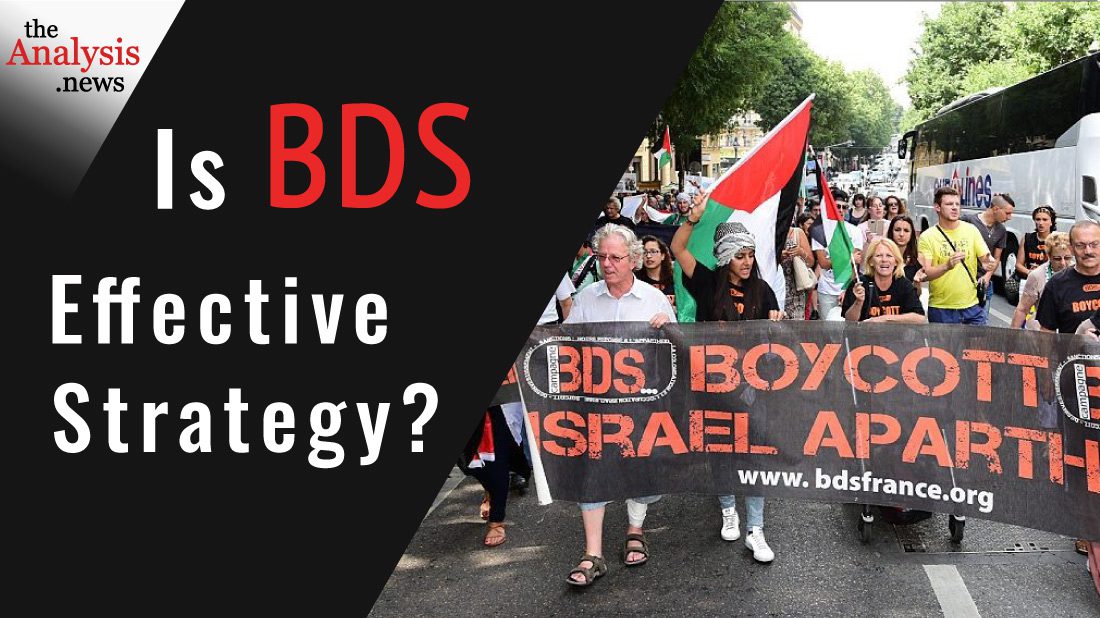

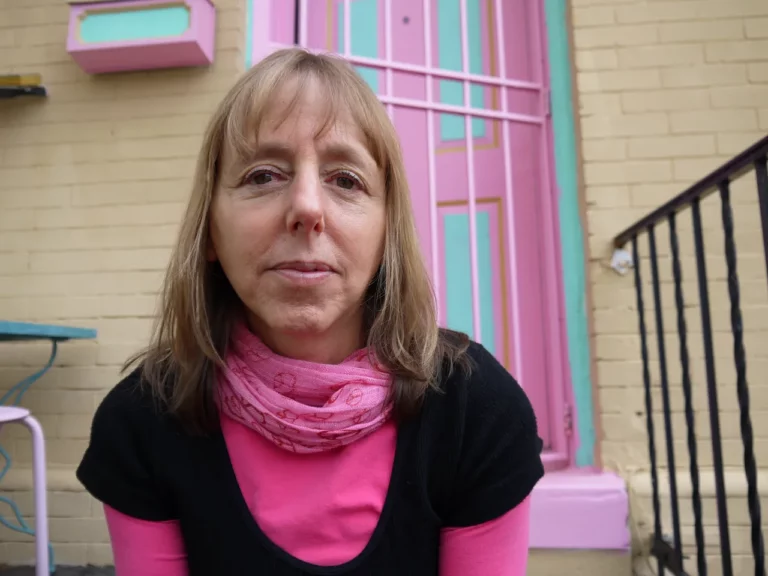
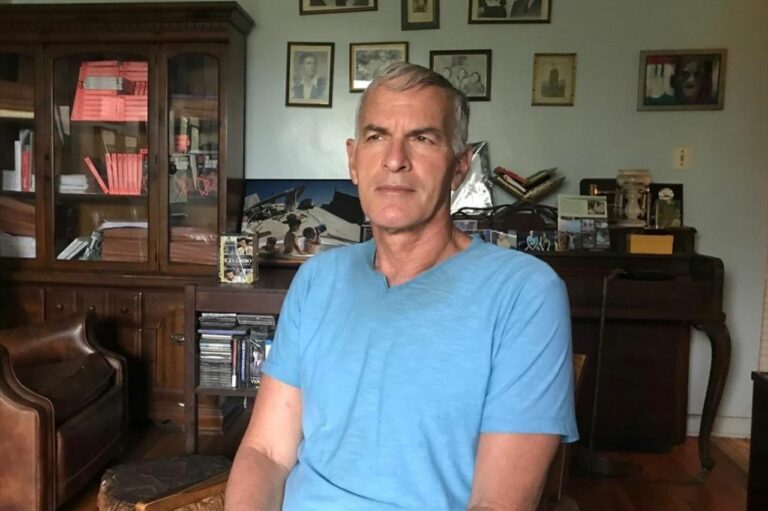
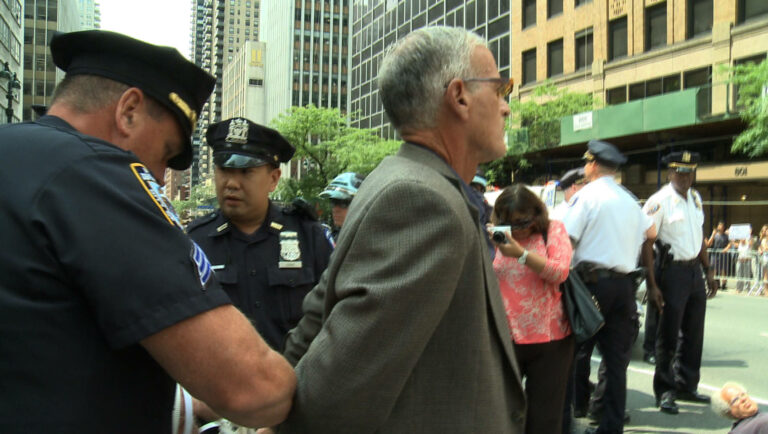
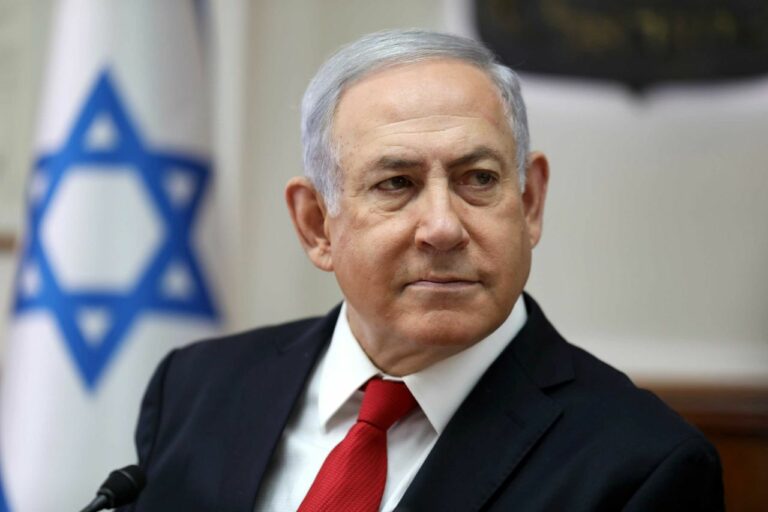
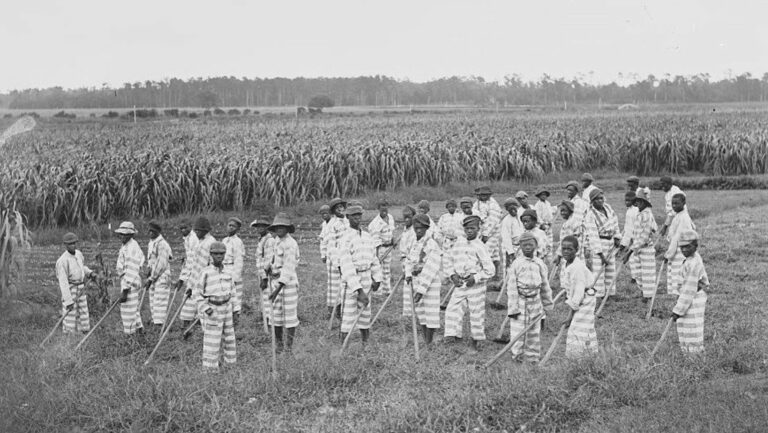
I’ve always enjoyed listening to commentary from Shir Hever, I’ve just very much been burned out on the futility of Israel/Palestine. For some time now my view has been dominated by the belief that air superiority is the only real difference between the parties currently involved.
A somewhat common attitude I’ve experienced is where Israelis are surrounded by neighbors that are hostile to them, and why can’t Palestinians just go live in an Islamic country that will obviously accept them because all Palestinians are obviously acceptable Muslims in any of the surrounding countries -problem solved! Not a very helpful interpretation, or solution.
Perhaps strange, I wonder if the best defense for Israeli Jews from their neighbors could be found in/by a State that practices justice for all of it’s inhabitants?
What might be interesting commentary to me would be what is possible on the other side of a “whatever number state solution”?
I find your basic argument an attempt to distract from the real issue. Just because the US and Saudi Arabia are guilty of actions that deserve BDS, doesn’t mean that Israel should suffer from that effort. The argument that BDS feeds into the claim that such efforts against Israel can be seen to be antisemetic is so problematic. It is a kind of gaslighting.
The economic impact of the boycott on South Africa was marginal. The SA economy was based on mining. Boycotting wines and oranges hurt those industries, of course, but had little effect in the over all economy.
BUT the boycott had a HUGE impact on the SA brand!! It challenged the LEGITIMACY of South Africa, which eventually led to things like exclusion from the Commonwealth, etc.
BDS represents a small economic challenge to Israel, but a very significant challenge to its legitimacy. They are not worried about the first, but very worriedabout the second.
i have listened with great interest to your discussion on the BDS which i found useful and to the point. it is even more relevant today after the PA killed the opposition activist Nizar Banat June 24th and as a result there is now a growing protest movement in the West Bank calling “Down with Abbas” (Irhal). the importance of your discussion stems from the fact that so many times in recent years the discussion on Palestine & Israel is reduced to black and white – for or against BDS / for or against Israel. I think the most important point that you raised was when you mentioned your visit to Ramallah and your meetings with activists that are extremely critical of both Hamas and Fateh but are not engaged in building the alternative that is needed. This point is of utmost importance if we look at the experience of Egypt where an amazing popular revolutionary movement failed to bring about a fundamental change and the Moslem Brotherhood and then the military took over. It is my opinion that the BDS tactic cannot be seen as a panacea – there is no escape from the need to put forward a solution to the Palestine / Israeli conflict that will guarantee freedom for Palestinians and full equality for all put an end to occupation and any form of racist and discriminatory laws.